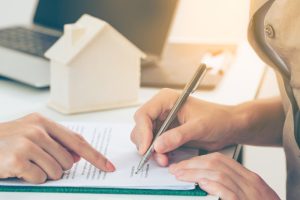Introduction
In South Africa there are many types of community schemes. I am often asked what homeowners’ association (HOA) is. A HOA is a legal body in which the individual properties are exclusively owned, while the communal infrastructure and facilities are owned by the association. This communal property can include boundary walls, security entrances, club houses and can also include the roads and bulk infrastructure services for water and electricity supply. This explanation sounds similar to sectional title ownership. In this article I will set out what HOAs are and how they are legally established.
Membership to HOAs
Each owner must be a member of the HOA so that they are bound by the governance documentation to ensure that they are legally liable to make contributions towards the HOA communal costs and abide by the other rules applicable to the estate.
Legislation establishing HOAs
There is no legislation that specifically governs the establishment and operation of HOAs, as there is for sectional title schemes.
Two ways in with HOAs can be established
There are two types of legal structure that are used to create or establish an HOA:
- A non-profIt company.
Where a HOA is incorporated as a non-profit company, its primary governance documentation is the memorandum of incorporation (MOI). The Companies Act 71 of 2008 regulates non-profit companies, and the content of the MOI cannot contradict any provision in the Companies Act.
- A common law association.
Where a HOA is incorporated as a common law association, its primary governance documentation is a written constitution, which acts as a contact binding all the owners. The common law also has detailed rules that apply to such associations.
The governance documentation
The purpose of these fundamental governance documents are to detail the purpose and regulate the rights and responsibilities of the HOA including the executives and the members.
In both forms of HOAs the governance documentation applicable are considered to be a contract that binds every member of the HOA. The members are also bound to the provisions in these documents because the title deed conditions imposed in regard to the individual properties in the estate must set out that any registered owner of such a property is a member of the HOA and obliged to comply with its governance documents, and that no registration of any transfer can take place until the HOA has issued a clearance certificate confirming that all amounts due to the HOA by the person transferring the property have been paid. The constitution and MOI will also require that any sale agreement must include a reference to these obligations.
Regulations, rules and architectural guideline
It often occurs in practice that these documents make provision for the executives to make regulations, rules and architectural guidelines that are binding on the members. The terms of the abovementioned documents cannot contravene or contradict any term in the constitution or MOI. The rules and regulations should be reasonably necessary, apply equally to all members and be within the scope of the executive’s rule-making authority as set out in the primary governance documentation. The constitution or MOI can also refer to other documents such as agreements with the local municipality or other service providers, and can incorporate such external documents by specific reference.
Community Schemes Ombud Service
The Community Schemes Ombud Service Act 9 of 2011 (the “CSOS Act”) came into operation in 2016. It provides an alternative dispute resolution procedure for all community schemes including HOAs.
The primary function of the CSOS is to provide a relatively inexpensive and efficient system to resolve administrative disputes that arise in community schemes.In performing its functions set out above the CSOS must:
- promote good governance of community schemes;
- provide education, information, documentation and such services as may be required to raise awareness to owners, occupiers, executive committees and other persons or entities who have rights and obligations in community schemes, as regards those rights and obligations;
- monitor community scheme governance;
and the CSOS may generally deal with any other matters as may be necessary to give effect to the objectives of the CSOS Act.
In terms of section 39 of the CSOS Act, the CSOS can grant orders under seven specific headings, with a total of 34 orders. The seven categories of disputes are:
- Financial
- Behavioural
- Scheme Governance
- Meetings and Resolutions
- Management Services
- Physical works
- General and Other
Conclusion
Living in an HOA comes with many advantages. Some of these pros include luxurious communal infrastructure such as clubhouses and pools; increased security with gated and guarded boundaries to entry, and shared expenses. Before committing to a purchase of a home within an HOA w recommend getting to know and understand its governance documentation, and all the rights and responsibilities contained therein.
WRITTEN BY DR CARRYN DURHAM







![Case discussion on SS Glen High v Kruger NO ((2023/055133) [2024] ZAGPJHC 1059 (10 September 2024)](https://b2659803.smushcdn.com/2659803/wp-content/uploads/2024/10/OIP-300x200.jpeg?lossy=1&strip=1&webp=1)




